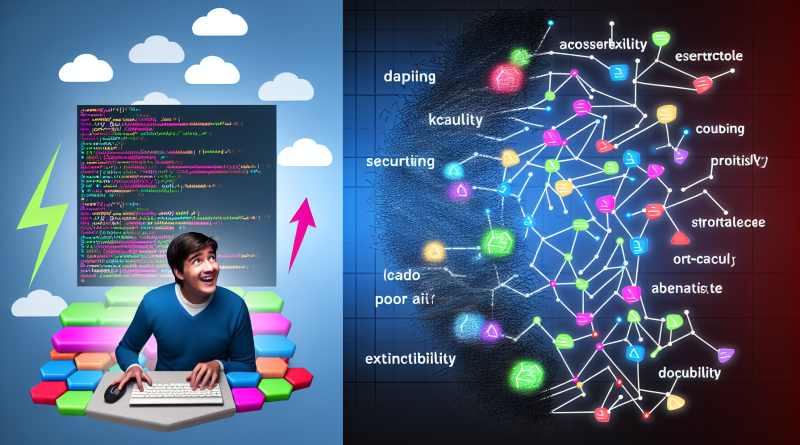Vibe Coding: The Promise and Pitfalls of AI-Generated Code
TL;DR
Vibe coding is great for quick hacks; lasting software still needs real engineers.
The Allure of Vibe Coding
It’s easy to see why vibe coding has captured the tech imagination. Instead of writing every line by hand, developers (or even non-developers) can describe their intent in plain English and let advanced large language models (LLMs) like GPT-5 or Claude generate the code. Karpathy’s viral tweet in February 2025 illustrated the appeal: he built a web app by simply telling an AI what to do, copy-pasting error messages back into it, and accepting the AI’s fixes, all while barely touching the keyboard. The speed and ease are unparalleled…
Shoot-and-Forget Code: Here Today, Gone Tomorrow
One of the biggest criticisms of vibe coding is that it encourages a “fire-and-forget” mentality toward code. You prompt the AI, get a working snippet or application, and move on without looking back, effectively “shoot-and-forget.” The code is treated as a one-shot solution: use it while it works, but don’t plan on modifying or extending it later, because doing so can be a nightmare…
The Hidden Costs: Security and Reliability Risks
Another major reality check for vibe coding comes in the form of security and reliability. AI-generated code may run, but is it safe and robust? Often the answer is no, at least not without a thorough review by a knowledgeable developer. By default, vibe-coded applications carry significant hidden risks that might not be obvious to the person who prompted the code…
Traditional Coding vs. Vibe Coding: Why Skills Still Matter
Amid the vibe coding hype, there’s a narrative in some circles that “coding skills are now redundant.” If an AI can generate code for you, why bother learning algorithms, data structures, or debugging techniques? This view is short-sighted. In reality, strong coding and software engineering skills are more important than ever…
No Panacea: Vibe Coding in Perspective
“Vibe coding” is an exciting development in software engineering, no doubt. It represents a powerful new tool in the programmer’s toolkit, one that can boost productivity and invite more people into coding. For quick prototypes, personal scripts, or learning exercises, it’s fantastic; you can materialize ideas with unprecedented speed…
